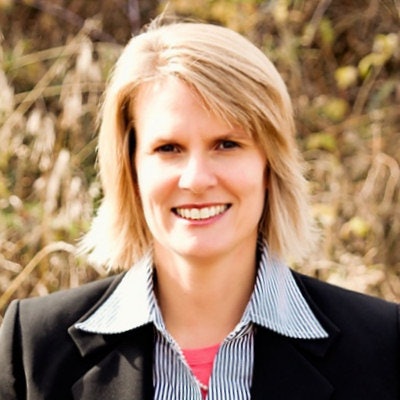
Last week, I got buzzed into a dental-affiliated office via a new security system.
"What happened? Why the new system?" I asked.
I was told a disgruntled patient entered the office and made racial slurs to the receptionist and became rather demanding. This scared the employees and prompted a more secure entranceway.
This brings up a great question for offices: How do dental practices best manage inappropriate patient behaviors?
Working with patients
 Lisa Knowles, DDS.
Lisa Knowles, DDS.Because we work with the public, there is a wide spectrum between what patients believe is appropriate behavior. Therefore, there is not one, single way to respond to these behaviors. What is a constant, however, is that someone in a leadership position is notified and the behavior is discussed and dealt with quickly.
What kind of inappropriate behaviors occur with our patients? In addition to racial or sexist slurs, there are also unwelcomed flirtatious comments from our patients. I know this happens to both men and women. One of my patients had a habit of eyeing my dental assistant colleague each time he would come in for treatment. He even inappropriately licked the saliva ejector when she asked him to close and spit. As an associate dentist at the time, I didn't know what to do besides cringe and tell him to stop.
After completing that particular treatment, the assistant and I talked with the owner-doctor who spoke with the patient and told him that this kind of behavior would not be tolerated in the office. He stopped doing that, but it was still very awkward to treat him after that.
Other patients have gazed into my eyes for way too long, and still others have said condescending comments about my team members and treated them as if they were like personal slaves. They took full advantage of "the customer is always right" relationship.
For me, inappropriate behaviors like this supersede any necessity by the team members to make the customer or patient feel valued. When these inappropriate patient comments or actions occur for the first time, I tend to allow a bit of leniency in case I misunderstood the situation, but if it is blatantly inexcusable or continues to surface at each appointment, that is when I have a firm but polite conversation with the patient.
Addressing situations
As leaders, we must address these uncomfortable situations with empathy and directness. Many patients do not mean to offend an employee, and words and cues can mean different things to different people due to generational gaps. Even though it's not the fun part of our jobs, we have to talk with these patients and discuss their insensitive or inappropriate behavior and explain why it's not welcome.
“When team members bring up a complaint about a patient, we must listen and believe them.”
I recommend finding a private area, ideally have another person in the room with you, and asking the patients if they remember the comment or behavior.
If patients deny it occurred, refresh their memory of the situation. If they respond with that they do remember, then politely tell them how those comments made another person feel. And tell them you hope that would not occur again because you want the office environment to be open and stress-free.
Many times this is enough to deter any other offending behaviors. But, if it does not stop the behavior, a second discussion may need to take place to excuse the patient from the practice. Proper documentation and notification in writing is always needed to ensure the patient does not feel abandoned.
When team members bring up a complaint about a patient, we must listen and believe them. This is not a time to ask if your team member is misinterpreting the situation. Nor is it the time to defend your patient who may also be a personal friend. And, when personal safety is at risk, it is time to involve the local police. No one should fear coming to work because of an inappropriate patient with threatening behavior.
These inappropriate comments and actions make our days more stressful and sometimes even make us question the safety of our work environments. We cannot avoid bad behavior -- even from our patients. It's tempting to try to overlook our patients' faults and make excuses for their inappropriate behaviors because we do not want to cause potential outbursts, nor lose patients for the sake of the practice's livelihood.
But, I can assure you, the practice will remain vital despite the rare occasions when a patient is excused, and the team will appreciate functioning in an environment where rude and offensive patients are not welcome.
Lisa Knowles, DDS, practices at Haslett East Lansing Dental Health & Wellness in East Lansing, MI, and is the founder and CEO of IntentionalDental Consulting. For more information, contact her at [email protected], or visit her website at Beyond32Teeth.com.
The comments and observations expressed herein do not necessarily reflect the opinions of DrBicuspid.com, nor should they be construed as an endorsement or admonishment of any particular idea, vendor, or organization.



















